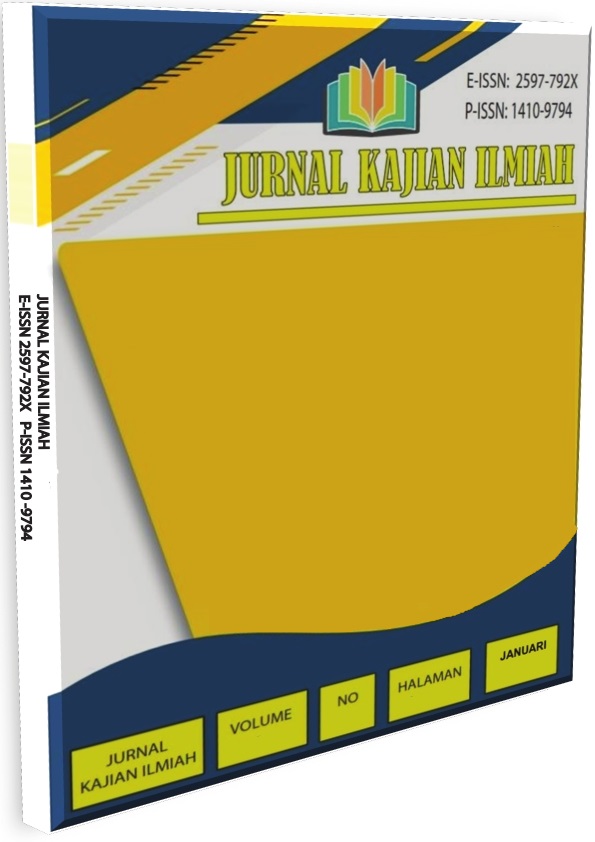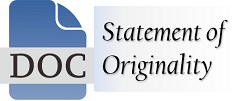Dinamika Peran Orang Tua Menanamkan Kemandirian Anak Autis
DOI:
https://doi.org/10.31599/kzt69483Kata Kunci:
Autistic Children, Independence, Parental Roles, ParentingAbstrak
This research aims to analyze the dynamics of parental roles in fostering independence in children with autism. The focus of this study is on the experiences and practices of parents regarding their efforts to support the independence of their autistic children. This study employs a qualitative method with a phenomenological approach. Data collection methods include in-depth interviews, observations, and documentation. The research involves two subjects and three informants. The two subjects are parents with autistic children aged 13 and 14 years old. The results of this study indicate that the independence of autistic children can be built through self-acceptance, which forms discipline, consistency, and guidance provided by parents from an early age. Another supporting factor is the deconstruction of the father’s role in the process of raising autistic children. The father’s role is crucial in shaping the discipline and independence of autistic children.
Unduhan
Referensi
American Psychiatric Association. (2020). Diagnostic and Statistical Manual of Mental Disorders Fifth Edition Text Revision DSM-5-TR (Issue July).
Duncan, A. W., & Bishop, S. L. (2015). Understanding the gap between cognitive abilities and daily living skills in adolescents with autism spectrum disorders with average intelligence. Autism, 19(1), 64–72. https://doi.org/10.1177/1362361313510068
Elder, J. H., Kreider, C. M., Brasher, S. N., & Ansell, M. (2017). Clinical impact of early diagnosis of autism on the prognosis and parent-child relationships. Psychology Research and Behavior Management, 10, 283–292. https://doi.org/10.2147/PRBM.S117499
Kusuma, N. A., Zubaedah, S., Sunan, U., & Yogyakarta, K. (2019). Penerapan Terapi Musik Modern pada Anak Autis Usia TK di Sekolah Bina Anggita Yogyakarta. Annual Conference on Islamic Early Childhood Education, 4, 351–366. http://ejournal.uin-suka.ac.id/tarbiyah/conference/index.php/aciece/aciece2
Malo, Kristina. Elekta Lojam, M. (2024). Triwikrama : Jurnal Ilmu Sosial Triwikrama : Jurnal Ilmu Sosial. 3(1), 122–132.
Ngewa, H. M. (2019). Peran Orangtua dalam Pengasuhan Anak. Volume 1 N, 7823–7830.
Purnamaningsih, N. M., Putu Satya Laksmi, I. G., & Devhy, N. L. P. (2020). Pola Asuh Orang Tua Mempengaruhi Kemampuan Self Care Pada Anak Autisme. Interest : Jurnal Ilmu Kesehatan, 9(2), 142–148. https://doi.org/10.37341/interest.v9i2.204
Rakhmatin, T., & Amilia, D. (2018). Proses Komunikasi Interpersonal Orang Tua Dengan Anak Autis Dalam Membentuk Kemandirian Anak. Jurnal Common, 2(2). https://doi.org/10.34010/common.v2i2.1191
Rakhmawati, I. (2015). Peran Keluarga dalam Pengasuhan Anak. 6(1), 1–18.
Santrock, J. W. (2008). Life-Span Development Thirteeth Edition.
Silfia & Ardianingsih, M. F. (2018). Hubungan pola Asuh Orangtua terhadap Kemandirian Kebersihan Diri (Personal Hygiene) Anak Autis di SLB Harmoni Gedangan Sidoarjo. Jurnal Pendidikan Khusus, 1–16.
Skinner, E., Johnson, S., & Snyder, T. (2005). Parenting : Science and Practice Six Dimensions of Parenting : A Motivational Model. Parenting: Science and Practice, 5(2), 175–235. https://doi.org/10.1207/s15327922par0502
Sugiyono, P. D. (2020). Metode Penelitian Kualitatif (Edisi ke-3). Alfabeta.











_-_Copy1.jpg)




